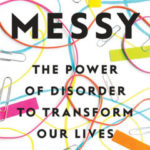In his new book, How to Fly a Horse: The Secret History of Creation, Invention, and Discovery, he takes on the “myth” of really smart guys — the romantic notion that “Geniuses have dramatic moments of insight where great things and thoughts are born whole.” As he explains in this excerpt, what’s most important to the creative process is not inspiration but work, failure, and more work:
Ideas are like seeds: they are abundant, and most of them never grow into anything. Also, ideas are seldom original. Ask several independent groups to brainstorm on the same topic at the same time, and you will likely get many of the same ideas. This is not a limitation of brainstorming; it is true of all creation. Because everything arises from steps, not leaps, most things are invented in several places simultaneously when different people walk the same path, each unaware of the others. For example, four different people discovered sunspots independently in 1611; five people invented the steamboat between 1802 and 1807; six people conceived of the electric railroad between 1835 and 1850; and two people invented the silicon chip in 1957. When political scientists William Ogburn and Dorothy Thomas studied this phenomenon, they found 148 cases of big ideas coming to many people at the same time and concluded that their list would grow longer with more research.
Having ideas is not the same thing as being creative. Creation is execution, not inspiration. Many people have ideas; few take the steps to make the thing they imagine. One of the best examples is the airplane. The brothers Orville and Wilbur Wright were not the first people to have the idea of building a flying machine, nor were they the first people to begin building one, but they were the first people to fly.



